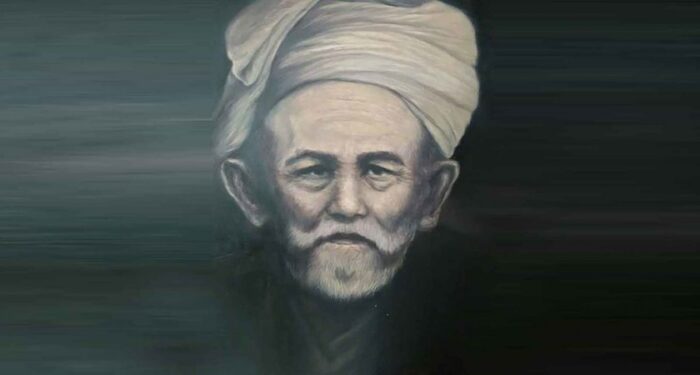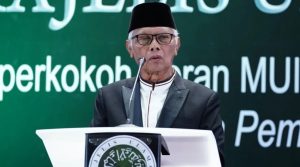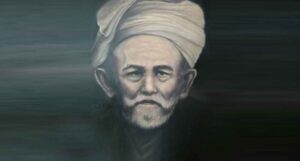By Bahron Ansori, Journalist of MINA News Agency
Sheikh Nawawi al Bantani was a prominent scholar from Nusantara (Indonesia) renowned for his contributions to Islamic scholarship. His full name was Muhammad Nawawi bin Umar al-Jawi al-Bantani. He was born in 1813 in Tanara, a village in Banten, Indonesia.
Sheikh Nawawi al Bantani settled in Mecca for a considerable period, approximately 50 years. He migrated to Mecca at the age of 15 and spent the rest of his life there until his passing in 1897. In Mecca, Sheikh Nawawi studied various religious sciences under many renowned scholars, taught extensively, and authored numerous books that became significant references in the Islamic world.
During his residency in Mecca, Sheikh Nawawi not only studied under various eminent scholars but also became one of the main teachers at the Masjid al-Haram. His presence in Mecca greatly contributed to the dissemination of Islamic knowledge worldwide, including back to his homeland, Indonesia, through his students and writings.
Also Read: The Forty-Four-Days of Glory: Azerbaijan’s Struggle for Justice and Peace
Here are some key points about Sheikh Nawawi al Bantani:
Firstly, education and influence. Sheikh Nawawi received his initial education from his parents, who were scholars themselves. He continued his studies in Mecca at the age of 15, where he learned from various prominent scholars of his time.
Secondly, among his works. Sheikh Nawawi was known as a prolific writer, having authored more than 100 books in various fields, including exegesis, hadith, jurisprudence, and Sufism. Some of his notable works include Tafsir Marah Labid (Tafsir al-Munir), Nihayat al-Zain, and Kasyifat al-Saja.
Thirdly, influence in the Islamic world. Sheikh Nawawi’s works are extensively studied in various pesantren (Islamic boarding schools) in Indonesia and other Islamic countries. He also had students who later became prominent scholars, including KH. Hasyim Asy’ari, the founder of Nahdlatul Ulama.
Also Read: Palestine Solidarity Month: A Collective Movement for Al-Aqsa and Palestine’s Freedom
Fourthly, position in Mecca. Due to his depth of knowledge and leadership, Sheikh Nawawi held a significant position as one of the main teachers at Masjid al-Haram, Mecca. He was respected by many scholars and students from various countries.
Fifthly, passing and legacy. Sheikh Nawawi al Bantani passed away in 1897 in Mecca. Despite his death, his legacy continues through his works that remain primary references in Islamic studies.
Sheikh Nawawi al Bantani is an example of a Nusantara scholar who had a profound influence on the Islamic world and served as an inspiration for many subsequent generations.
Role of Sheikh Nawawi in Indonesia
Also Read: Hassan al-Turabi: A Controversial Thinker from Sudan
Sheikh Nawawi al Bantani played a significant role in the development of Islamic scholarship in Indonesia. Some of his important roles include:
Firstly, dissemination of religious knowledge. Through his extensive and profound works, Sheikh Nawawi made significant contributions to the spread of religious knowledge in Indonesia. His books are used as primary teaching materials in many pesantren, which are centers of traditional Islamic education in Indonesia.
Secondly, influence in pesantren. As one of the scholars whose works are widely taught in pesantren, Sheikh Nawawi played a crucial role in shaping the curriculum and teaching methods in these institutions. Pesantren throughout Indonesia teach his books, spreading his teachings widely among students and local scholars.
Thirdly, mentor for local scholars: Sheikh Nawawi was the teacher of several prominent Indonesian scholars, including KH. Hasyim Asy’ari, the founder of Nahdlatul Ulama. Through his students, Sheikh Nawawi’s influence continued and grew within various religious and social organizations in Indonesia.
Also Read: Who Exactly is the RSF Group Shaking Sudan?
Fourthly, contributions to jurisprudence and Sufism. Sheikh Nawawi’s works in the fields of jurisprudence and Sufism provide clear and profound guidance for Muslims in Indonesia. His books, such as Nihayat al-Zain and Kasyifat al-Saja, are important references in everyday religious practices.
Fifthly, formation of the Nusantara Islamic identity: By integrating local values into his teachings, Sheikh Nawawi helped shape a distinctive Nusantara Islamic identity. He harmonized Islamic traditions with local culture, allowing Islam to be embraced and practiced effectively by Indonesian society.
Sixthly, social and political influence. As a prominent scholar, Sheikh Nawawi also contributed to the fields of social and political affairs. Through his teachings, he encouraged Muslims to uphold values of justice, moderation, and piety, which helped shape the social fabric of Indonesian society.
Seventhly, renewal in Islamic education. Sheikh Nawawi played a role in revitalizing teaching methods and introducing broader Islamic literature. This helped enhance the quality of Islamic education in Indonesia and enriched religious knowledge among Muslim communities
Also Read: The Two-State Solution (Palestine–Israel) in Historical Perspective
Overall, Sheikh Nawawi al Bantani played a crucial role in the development and dissemination of religious knowledge in Indonesia. His influence was not only felt during his time but continues to this day through his works and his students who continue the scholarly tradition he established.
Works of Sheikh Nawawi Al Bantani
Sheikh Nawawi al Bantani was a prolific scholar who wrote more than 100 books in various fields of religious knowledge, including exegesis, hadith, jurisprudence, and Sufism. Some of his well-known works in the Islamic world include:
Firstly, Tafsir Marah Labid (Tafsir al-Munir). This is one of the highly esteemed commentaries on the Quran. Known for its deep and comprehensive explanations of Quranic verses, it employs a systematic and detailed approach.
Also Read: Enchanted by K-Dramas, Dragged into Slander: Time for Muslims to Rise!
Secondly, Nihayat al-Zain. A jurisprudential book that serves as a vital reference in the Shafi’i school of thought. This book is widely used in pesantren in Indonesia and other countries following the Shafi’i school.
Thirdly, Kasyifat al-Saja. This book provides commentary and explanations on the book “Safinatun Najah,” a fundamental work in Shafi’i jurisprudence. Kasyifat al-Saja is a significant reference for students of jurisprudence in the Islamic world.
Fourthly, Salalim al-Fudhala’. A book that discusses the science of rhetoric (balaghah) in the Arabic language. This book demonstrates Sheikh Nawawi’s expertise in Arabic language and literature.
Fifthly, Qami’ al-Tughyan. A work in Sufism that explores ethics and spirituality in Islam. This book elaborates on methods to attain closeness to Allah through enhancing ethics and worship.
Also Read: Creating Opportunity and Avoiding Misery; Lesson Learn on Waste Recycling Issue
Sixthly, Tijan al-Durari. This book is a commentary (syarah) on the book “Arba’in Nawawi” by Imam Nawawi, which is a collection of 40 important hadiths in Islam. Sheikh Nawawi provides profound explanations of each hadith in this collection.
Seventhly, Fath al-Majid. This book is an explanation (syarah) of the book “Fath al-Qarib,” a foundational jurisprudence book in the Shafi’i school. Fath al-Majid serves as an important reference for jurisprudence students seeking a deeper understanding of Islamic laws.
Eighthly, Sulam al-Munajat. This book discusses Sufism and the path to purifying the heart and drawing closer to Allah. It is often read by those delving into the study of Sufism.
Sheikh Nawawi al Bantani’s works are not only used in Indonesia but also in many other countries in the Islamic world, especially in regions following the Shafi’i school. His works have made significant contributions to the development of Islamic knowledge and religious education.
Also Read: Between the Treaty of Hudaybiyyah and Ceasefire in Gaza
Students of Sheikh Nawawi Al Bantani
Sheikh Nawawi al Bantani had numerous students who became famous and influential scholars, especially in Indonesia. Some of his notable students include:
Hasyim Asy’ari. KH. Hasyim Asy’ari was the founder of Nahdlatul Ulama (NU), the largest Islamic organization in Indonesia. He studied directly under Sheikh Nawawi and became a central figure in the development of Islamic education in Indonesia. KH. Hasyim Asy’ari is highly respected and known as a great scholar who made significant contributions to the Islamic world.
KH. Ahmad Dahlan. KH. Ahmad Dahlan was the founder of Muhammadiyah, one of the largest Islamic organizations in Indonesia. Although he did not study directly under Sheikh Nawawi, the teachings and thoughts of Sheikh Nawawi greatly influenced the intellectual development. (T/RE1/P2)
Also Read: Peace Cannot Be Achieved Without a Palestinian State
Mi’raj News Agency (MINA)

































 Mina Indonesia
Mina Indonesia Mina Arabic
Mina Arabic